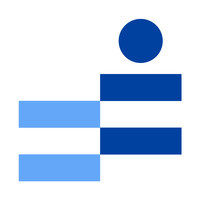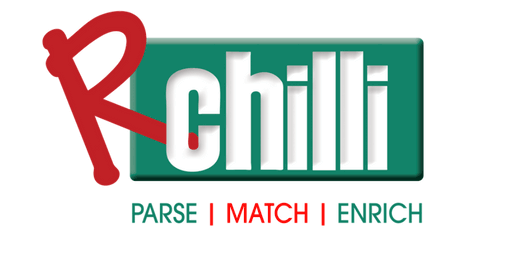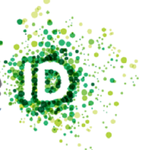Description

Big Biller

TRIS
Comprehensive Overview: Big Biller vs TRIS
Big Biller and TRIS are products often referenced in the context of recruitment software and applicant tracking systems. However, to provide a comprehensive overview, let's dive into each product individually based on available information, highlighting their primary functions, target markets, market positions, and key differentiators.
Big Biller
a) Primary Functions and Target Markets
- Primary Functions: Big Biller is primarily an applicant tracking system (ATS) and recruiting software designed to streamline the hiring process. It offers features such as resume parsing, candidate tracking, job posting distribution, recruitment pipeline management, and integrated CRM functionalities for recruiters.
- Target Markets: The product is aimed at small to medium-sized recruiting firms and staffing agencies that require efficient management of their hiring processes. It is especially beneficial for agencies focusing on direct hire, temp staffing, and executive search.
b) Market Share and User Base
- Market Share: As a product, Big Biller is positioned in the mid-tier range of the ATS market. While it doesn't hold the expansive user base of some major ATS competitors which dominate larger enterprises, it is significant within the small to medium-sized agency space.
- User Base: Its user base consists mostly of staffing and recruiting professionals who prefer a balance between functionality and cost. The platform's ease of use and specialized features make it attractive to independent recruiters and small teams.
c) Key Differentiating Factors
- Ease of Use: Big Biller is praised for its user-friendly interface and quick learning curve which is critical for smaller agencies without extensive IT support.
- CRM Integration: Offers a robust CRM system that is integrated within the ATS, allowing recruiters to manage both candidates and clients seamlessly.
- Customization and Support: Provides customizable features tailored to specific recruiting workflows along with responsive customer support, essential for smaller businesses looking for personalized service.
TRIS
TRIS is a less commonly referenced product in the same context as Big Biller, but let's explore its possible implications in recruitment technologies.
a) Primary Functions and Target Markets
- Primary Functions: If interpreted within recruitment technology circles, TRIS might refer to Travel and Relocation Information Systems as some ATS products offer functionalities that handle candidate logistics. However, if TRIS stands for another specific recruitment solution, its typical functionalities might include end-to-end recruiting management, automated workflows, and reporting analytics.
- Target Markets: Such systems would also target recruitment agencies but could potentially cater to larger enterprises that require comprehensive relocation and travel logistics management, employee onboarding, and other HR functions.
b) Market Share and User Base
- Market Share: Without specific data on TRIS, assuming it's a new or niche product, it might cater to specialty markets within the recruitment and HR tech space.
- User Base: Likely focused on industries or companies with international workforce requirements or specific relocation needs, if interpreting TRIS as tailored recruitment technology.
c) Key Differentiating Factors
- Specialized Features: If it involves relocation support, the differentiation could be in detailed management of candidate logistics, such as visa processing, international compliance, and detailed expense tracking.
- Comprehensive HR Integrations: TRIS might offer strong integrations with other HR systems, catering to full employee lifecycle management rather than just recruitment.
Comparative Overview
-
Focus: Big Biller is more concentrated on candidate tracking and recruitment CRM functionalities for small to mid-sized agencies, while TRIS might be specialized in broader HR applications including logistics and relocation if assumed within that context.
-
User Experience: Both might offer user-centric experiences but cater to different administrative complexities—Big Biller for straightforward recruitment processes and TRIS potentially for more complex HR and logistical workflows.
-
Market Positioning: Big Biller is well-established amongst smaller recruiters aiming for a simple, efficient system, whereas TRIS might either target niche segments or operate in less crowded competitive landscapes if it's a specialized HR tool.
In essence, the core competencies and user bases can deeply vary depending on the scope of TRIS as a HR solution, but Big Biller remains distinct for its recruitment-focused software catered to smaller recruitment agencies.
Contact Info

Year founded :
Not Available
Not Available
Not Available
Not Available
Not Available

Year founded :
Not Available
Not Available
Not Available
South Korea
Not Available
Feature Similarity Breakdown: Big Biller, TRIS
Big Biller and TRIS (The Recruiting Information System) are both recruitment and applicant tracking systems (ATS) designed to streamline recruitment processes for staffing agencies and HR departments. Here is a feature similarity breakdown for these products:
a) Core Features in Common
-
Applicant Tracking:
- Both Big Biller and TRIS offer capabilities to manage and track applicants through different hiring stages.
-
Recruitment Workflow Automation:
- Automation of repetitive tasks such as sending follow-up emails, scheduling interviews, and updating candidate statuses.
-
Resume Parsing:
- Strong resume parsing capabilities to extract and organize candidate information efficiently.
-
Database Management:
- Robust database systems to store and retrieve candidate and job-related information.
-
Search and Filter Options:
- Advanced search and filtering tools to quickly find the right candidates based on various criteria.
-
Integration with Job Boards:
- Integration capabilities with popular job boards for posting jobs or importing candidates.
-
Reporting and Analytics:
- Tools to generate reports on key metrics, helping recruiters analyze performance and efficiency.
-
CRM Features:
- Customer Relationship Management features aiding in maintaining both candidate and client relationships.
b) User Interface Comparison
-
Big Biller:
- Known for its user-friendly interface tailored to recruiting firms.
- Provides a simple, intuitive dashboard that emphasizes ease of navigation and quick access to critical features.
- Often praised for its minimalistic yet functional design, allowing users to perform tasks efficiently with fewer clicks.
-
TRIS:
- Typically offers a more customizable interface suitable for a wider range of recruitment needs.
- Provides flexibility to tailor the user interface according to the specific requirements of an organization.
- Users have noted that while it may be initially more complex, it offers extensive functionality once fully configured to user preferences.
c) Unique Features
-
Big Biller:
- Hotlist Management: Allows recruiters to create and manage hotlists of candidates, making it easier to maintain a shortlist of top candidates for quick access.
- Integrated Big Biller Network: Enables subscription to a recruitment network enhancing collaboration with other agencies using the same platform.
-
TRIS:
- Highly Customizable Dashboards: Users can tailor dashboards to show the metrics and information that matter most to their organizational roles and functions.
- Strong Compliance Features: Robust compliance tools, ensuring adherence to different legal requirements applicable in different regions, which can be an attractive feature for global recruitment agencies.
- Enhanced Vendor Management System (VMS) Integration: Allows for better handling of third-party agency relationships and workflows.
In conclusion, while both Big Biller and TRIS share many core features as recruitment systems, they differentiate through user interface styles and certain unique features tailored to specific organizational needs. Big Biller excels with its user-friendly design and collaborative network, whereas TRIS provides greater customization and compliance tools.
Features

Not Available

Not Available
Best Fit Use Cases: Big Biller, TRIS
Big Biller and TRIS are tools often associated with recruitment and staffing, each offering features that cater to different aspects of these processes. Here's a breakdown of the best fit use cases for each:
Big Biller
a) Types of Businesses or Projects:
-
Recruitment Agencies and Staffing Firms: Big Biller is particularly well-suited for small to mid-sized recruitment agencies. Its features are designed to streamline the recruiting process, making it an excellent choice for agencies looking to manage candidate information, client relationships, and job orders efficiently.
-
Growing Companies with Active Hiring Needs: Companies in expansion phases that require a steady hiring stream can benefit from Big Biller's ability to track multiple job openings and manage candidate pipelines effectively.
d) Industry Verticals or Company Sizes:
-
Industry Verticals: Big Biller is versatile across various industry verticals but shines in those with high competition for talent such as technology, healthcare, and sales. Its tools help recruiters manage workflows and candidate relationships efficiently in these fast-paced sectors.
-
Company Sizes: It is ideal for small to medium-sized companies. These businesses often need robust recruiting tools that are powerful yet affordable and scalable as they grow.
TRIS (Talent Relationship Intelligence Software)
b) Scenarios Where TRIS is Preferred:
-
Enterprises Focused on Talent Relationship Management: TRIS is ideal for organizations that place a high priority on nurturing and maintaining relationships with both active and passive candidates. It is particularly beneficial for industries where talent sourcing extends over long periods.
-
Data-Driven Recruitment Strategies: Organizations that rely heavily on data to drive their recruitment strategies will find TRIS advantageous. Its ability to analyze talent data and provide insights into candidate engagement and relationship dynamics makes it a powerful tool for strategic hiring.
d) Industry Verticals or Company Sizes:
-
Industry Verticals: TRIS is beneficial for industries requiring specialized talent or where the candidate sourcing process is complex, such as engineering, finance, and executive search sectors.
-
Company Sizes: While TRIS can be used by companies of various sizes, it is especially beneficial for larger firms and enterprises with dedicated talent acquisition teams needing detailed analytics and relationship management functionalities.
In summary, Big Biller is best suited for smaller to medium-sized recruitment agencies and growing companies with immediate hiring needs, while TRIS is tailored for enterprises focusing on building long-term relationships with candidates and leveraging data-driven insights for recruitment. Both cater to different scales and dynamics of recruitment, providing tools that align with the unique needs of various industry verticals.
Pricing

Pricing Not Available

Pricing Not Available
Metrics History
Metrics History
Comparing undefined across companies
Conclusion & Final Verdict: Big Biller vs TRIS
In evaluating Big Biller and TRIS, it's essential to consider various factors such as cost, functionality, user experience, customer support, and scalability. Here's a conclusion and final verdict:
a) Best Overall Value
Best Overall Value: TRIS
Considering all factors, TRIS generally offers the best overall value. It provides a more comprehensive feature set tailored for different business needs and offers greater scalability with its integrations and customizable options. This makes it suitable for businesses that require robust recruitment solutions with advanced capabilities.
b) Pros and Cons of Each Product
Big Biller
- Pros:
- User-friendly interface that requires minimal training.
- Quick and efficient setup process.
- Cost-effective for small to medium-sized recruitment firms.
- Good customer support with timely assistance.
- Cons:
- Limited advanced features compared to TRIS.
- Less scalable for larger organizations.
- Fewer integrations with third-party applications.
TRIS
- Pros:
- Extensive features offering advanced recruitment solutions.
- Highly scalable, fitting the needs of both small and large businesses.
- Strong integration capabilities with other software.
- Customizable workflows and reporting for specific organizational needs.
- Cons:
- Steeper learning curve due to the extensive feature set.
- Higher cost, which might not be feasible for smaller firms.
- May require additional training for optimal use.
c) Recommendations
-
Size and Scope of Business:
- If you are a small to medium-sized recruitment firm looking for a straightforward, cost-effective solution, Big Biller is a practical choice due to its simplicity and affordability.
- Larger organizations or businesses anticipating rapid growth should opt for TRIS to leverage its advanced features and scalability.
-
Feature Requirements:
- Choose Big Biller if your recruitment process is relatively straightforward and doesn’t require extensive customizations or integrations.
- Go with TRIS if you need customizable workflows, detailed analytics, and robust integration capabilities to align with complex recruitment needs.
-
Budget Considerations:
- Evaluate your budget constraints: Big Biller is a more budget-friendly option, whereas TRIS, though more expensive, delivers excellent value through its comprehensive features.
-
Trial and Training:
- It’s advisable for users to take advantage of free trials and demos offered by both platforms to assess which aligns better with their operational requirements.
- Invest time in training sessions, especially with TRIS, to maximize the software’s potential.
Ultimately, the decision between Big Biller and TRIS should be based on your specific business needs, long-term goals, and resource availability.
Add to compare
Add similar companies




